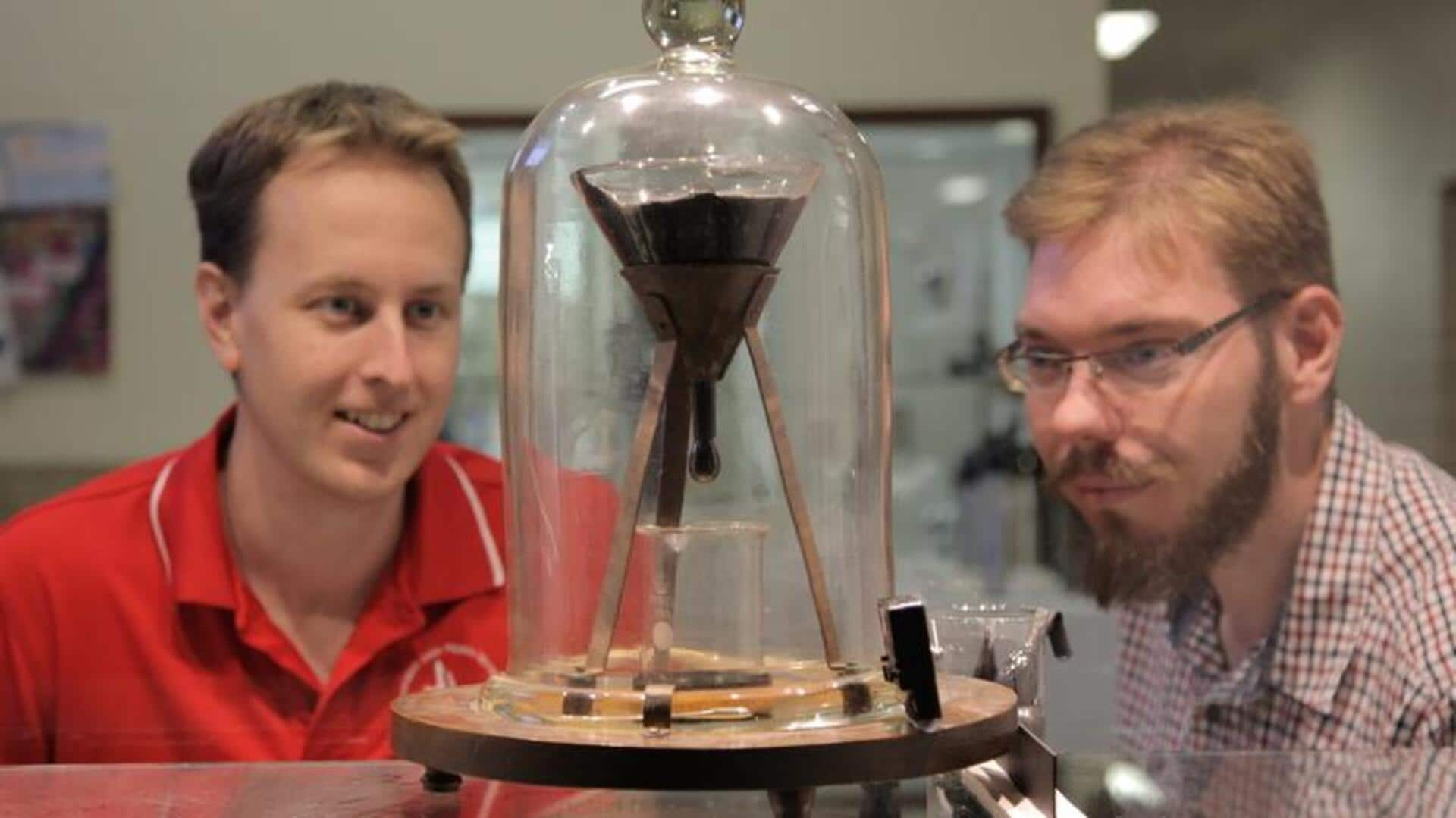
World's longest experiment, started in 1927, is not over yet
What's the story
The Pitch Drop Experiment, started by Australian physicist Thomas Parnell in 1927, is approaching its centennial anniversary. The one-of-a-kind scientific experiment is known as the world's slowest experiment. Since it began, only nine drops have fallen from the funnel used in the experiment. The project was intended to showcase the surprising properties of everyday materials like pitch—a highly viscous substance that looks solid but is liquid.
Experiment details
Pitch: A substance 100 billion times more viscous than water
Pitch is 100 billion times more viscous than water and two million times more viscous than honey. For the experiment, Parnell heated this tar-like material and poured it into a glass funnel. The setup was allowed to cool for three years before the experiment finally begain in 1930, when he cut the bottom of the funnel, allowing the pitch to drip out at an extremely slow pace.
Drip timeline
First drop fell 8 years after experiment began
Notably, the first drop of pitch didn't fall until 1938, eight years after the experiment officially began. Since then, drops have fallen at intervals of approximately eight to nine years. The most recent drop fell in April 2014, a full 14 years after the previous one in 2000. The rate at which the pitch flows varies according to temperature changes.
Global recognition
Pitch drop experiment holds a Guinness World Record
The Pitch Drop Experiment has secured a spot in the Guinness World Records as the longest-running laboratory experiment. It is kept in a display cabinet at the University of Queensland, Australia, where people can see it. The university also live streams the experiment online. The university states that 483 people watched the ninth drop fall in 2014 through a live webcam.
Award
Experiment's custodians awarded the Ig Nobel Prize
After Parnell's time, Professor John Mainstone took over the experiment in 1961 and continued it for more than half a century. In 2005, both Parnell (posthumously) and Mainstone were awarded the Ig Nobel Prize—a satirical award that celebrates bizarre accomplishments in scientific research. The Pitch Drop Experiment still fascinates scientists and commoners alike with its display of pitch's peculiar characteristics.